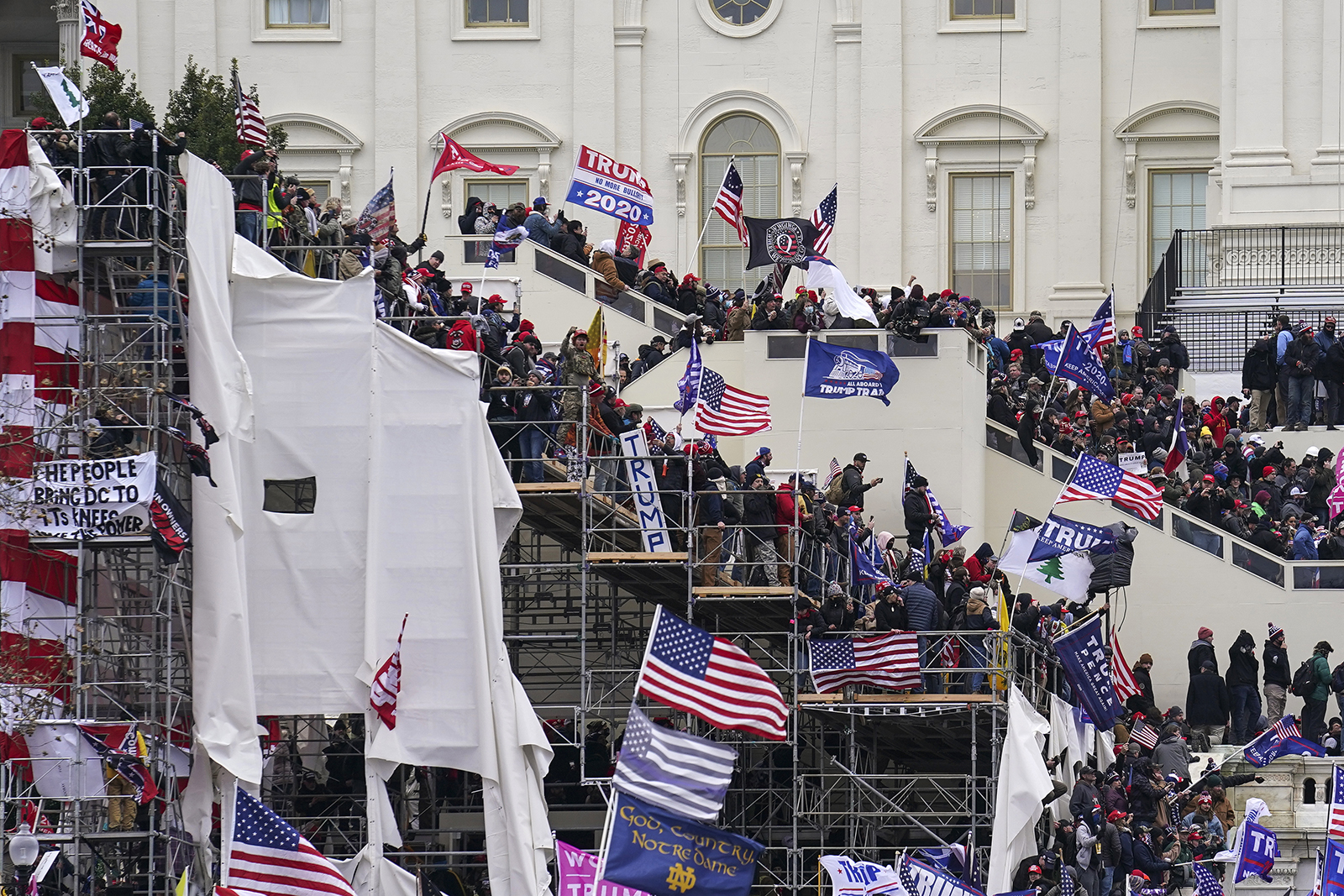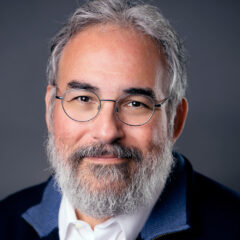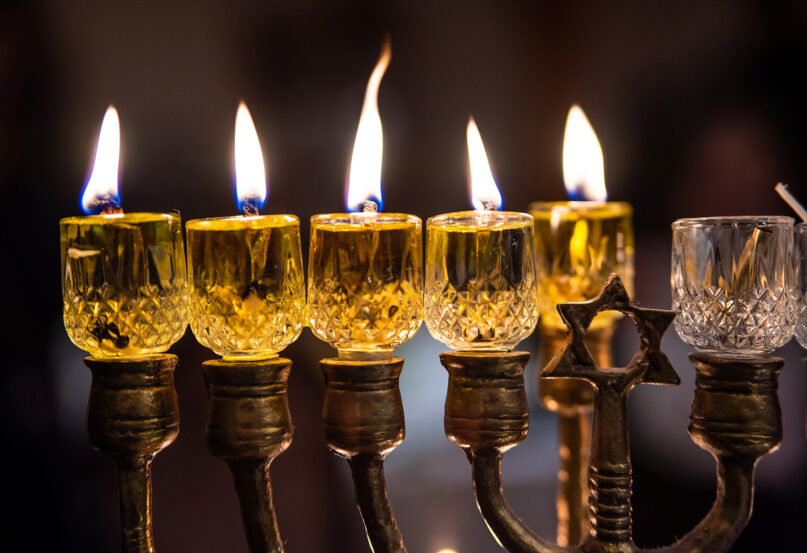(RNS) — What do Nov. 28 and Jan. 6, 2021, have in common? Both are dates connected to insurrection.
Sunday, Nov. 28, was the first night of Hanukkah, the Jewish holiday that celebrates an insurrection during the second-century B.C.E. — an insurrection of who against whom and/or what is debatable, but it was certainly an insurrection. The menorah lights that glow this time of year commemorate the oil that burned — some say miraculously — as Jewish rebels withstood a counterattack from some combination of the ruling Seleucid army and their own co-religionists.
Some tell it as an insurrection of deeply religious country folk overthrowing wealthy, cosmopolitan elites who were washing out the greatness of their nation. Others imagine the Hanukkah story as a war for political liberation from colonialist overlords imposing anti-democratic, imperialist, patriarchal rule over an indigenous people.
Does either of these story lines sound familiar?
It’s not hard to imagine either the insurrectionists of Jan. 6 or the protesters seeking greater racial justice for our nation loudly proclaiming words ascribed to the Hanukkah insurrectionist, Mattathias, as they’ve come down to us in the Bible’s First Book of Maccabees: “Let everybody who is zealous for the law, and stands by the covenant, follow me.”
RELATED: In time for Hanukkah, archaeologists reveal battle-scarred stronghold against Maccabees
Some see in Hanukkah’s miraculous intervention a story of a small group of resisters who knew “the real truth” about what was happening in the world being proved right, while the leading “science of the day” was proved false. We might have run into one or another of these modern-day Manichaeans — otherwise known as conspiracy theorists — at the Thanksgiving table this past weekend.
Hanukkah invites us to consider the complexity of what it means to celebrate a holiday of insurrection, in a time of insurrection. Whether we tell the Hanukkah story as a tale of civil war, religious conflict, rebellion against an imperial invader or a combination of all three, Jews have proudly celebrated it for 2,200 years.
Meanwhile, for 245 years, we Americans have been living in a nation founded upon insurrection. Some relish that fact, some tremble at it, but there is no denying that insurrection is a critical part of our cultural and political DNA. Between the American Revolution and the Civil War, Shay’s Rebellion lasted almost an entire year and could have toppled the newly founded United States of America; it also led to the creation of the Constitutional Convention.
Shorter lived but no less momentous was John Brown’s raid on Harper’s Ferry. Seen as wrong even by most who condemned slavery, it’s often taught now as a necessary blow for freedom. The uprisings and rioting after the assassination of the Rev. Martin Luther King in April 1968 was part of a long insurrection that swept up racism and opposition to the war in Vietnam and opened new frontiers for youth culture in America.

Insurrectionists climb inauguration scaffolding outside the Capitol on Jan. 6, 2021, in Washington. (AP Photo/John Minchillo)
Hanukkah, which begins with the candles we light, invites us to understand insurrections as generating both heat and light — heat that marks passionate debate, hopefully followed by light that helps us to see what we have not previously understood in the midst of those very debates.
Hanukkah itself has divided and united Jewish people from the very first time it was observed — celebrated by different people for different reasons. A relatively new entry into the Jewish holiday cycle, it secured a place on the religious calendar precisely because Jews could continually refashion its purpose by reexamining who the “good guys” and who the “bad guys” are: The historical records and sacred texts suggest that plenty of Jews thought the Seleucids were fine; some were agnostic on the issue; while others were quite convinced that the Jewish insurrectionists were the bad guys.
Perhaps that ongoing reimagining is the Hanukkah inspiration we all need most this year — not just Jews and those who choose to observe Hanukkah with us, but all of America.
When do we think that insurrection is a good, or even sacred, act? When do we consider it wrong, or even sinful? Can it be both? How do we decide, and is it always nothing less than good when we support the desired conclusion and wrong when we don’t?
While the Maccabees are heroes for most contemporary Jews, they were regarded by most of their contemporaries as more like the crowds that stormed the U.S. Capitol. I hope that the perpetrators of Jan. 6 are punished, but I also realize they may come to be appreciated as having drawn attention to the needs and fears of many of our fellow citizens. It doesn’t justify what they did, but it shapes how I see them and how I hope we can recover from what they did.
Insurrections — both the “good” ones and the “bad” ones — occur in real time, but how long does it take to determine the value of any insurrection? How do we make room for both short-term determinations and longer-term conclusions?
RELATED: RNS holiday gift guide 2021: Treat yourself to cozy socks or a self-care box
Perhaps most importantly, do we ever imagine that different people can reach valid but diametrically opposed conclusions about any particular insurrection, even when they have reached a conclusion we think is terribly wrong?

Rabbi Brad Hirschfield. Courtesy photo
How can our answer to that question, and those above, bind us together as a nation, without demanding that we surrender our own dearly held conclusions? That is what it means to bring both the Hanukkah heat and the Hanukkah light, not just for eight nights, but all year long.
(Rabbi Brad Hirschfield is president of the National Jewish Center for Learning and Leadership. The views expressed in this commentary do not necessarily represent those of Religion News Service.)





